A Coaching Model Created by Katharina Von Knobloch
(Expat Partner Coach, UNITED STATES)
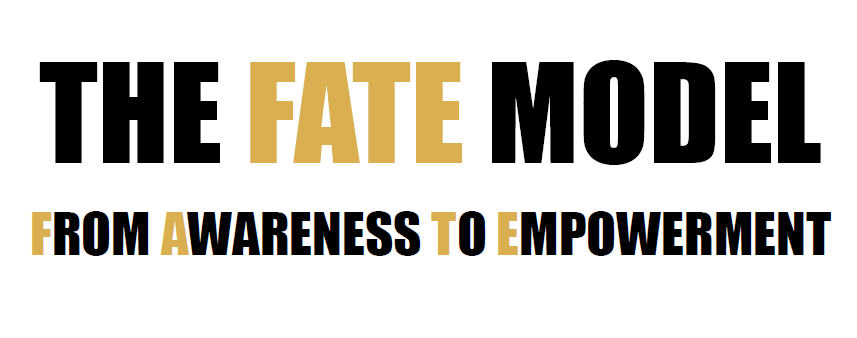
From Awareness To Empowerment
Coaching Niche
 My coaching practice serves clients who are about to move abroad or are already living abroad for a defined amount of time. I am focusing my work on supporting the so-called expat spouse who is joining her partner abroad on a work project. Statistics show that these clients are mostly female and are giving up or pausing a career to make this move possible. The assignment is often triggered by external factors such as a company‘s decision. Often the couple is not able to decide on the country they are moving to or how long they will stay. A lot of flexibility and adaptability is expected by the company sending families abroad.
My coaching practice serves clients who are about to move abroad or are already living abroad for a defined amount of time. I am focusing my work on supporting the so-called expat spouse who is joining her partner abroad on a work project. Statistics show that these clients are mostly female and are giving up or pausing a career to make this move possible. The assignment is often triggered by external factors such as a company‘s decision. Often the couple is not able to decide on the country they are moving to or how long they will stay. A lot of flexibility and adaptability is expected by the company sending families abroad.
Some key demographics/statistics to understand the client:
What Expat Partners struggle with:
Vision

I am aiming to support the Expat Partner in this intense time of moving abroad and welcoming all levels of change into her life. It is my goal to use my coaching practice to bring awareness and empowerment to the expat‘s journey. Coaching is the perfect tool to create a space of reflection, creative thinking, and brainstorming. I want to help women to see the positive side of the challenge and acknowledge their achievements. Many women struggle with their confidence after being rejected from the foreign job market, struggling with their relationship or feeling lost abroad. With my coaching practice, I will empower women to take their faith into their own hands and feel like being in the driver seat again.

Roots
Throughout my own journey to becoming a coach, I realized that it is not my role to take away the struggle from my client based on my experience but to create the space where the client can come to her very own solution that would match her personal situation. I don‘t want to take away the learning curve but want to empower others to get to their very own solution quicker.
When it comes to Expat Partner support, one model proofed to be very helpful: The theory of a fixed mindset vs. a growth mindset. My very own coaching model will base on this concept using it as a metaphor for personal development and a symbol for how much our very own mindset will decide on our fortune abroad.
The Mindset of Change
The mindset of change is a growth mindset. The idea behind: We will make mistakes and there will be setbacks, but we have the confidence that these experiences will help us to grow. The way we think about ourselves and our lives will determine whether we move forward and flourish or stay stagnant in the same old, unproductive way (the fixed mindset). Throughout the expat experience, one will find ourselves switching between those two mindsets. The most important thing is to focus on getting back on the growth mindset when it is way too tempting to stay at home with a blanket over us hiding from the challenges around us. The expat mindset is the one embracing change and welcoming challenges equipping us with the mood of everything is possible.
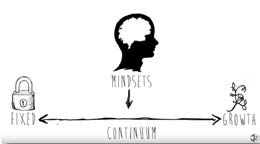
The goal is to get the client from a fixed mindset to a growth mindset enabling to see the opportunities within the challenge and rise to the occasion.
The 5 Phases of Cultural Adaptation
Another helpful model I am basing my coaching concept is the theory of the 5 phases of cultural adaptation. It shows that moving abroad and adapting to new circumstances is a process. Although we are all very individual, the model shows that most of us are basically going through similar phases of adaptation. For many expats the knowledge of not being alone but experiencing a common process is comforting. Introducing the concept to the client helps to give orientation and perspective on the journey behind as well as the journey ahead.
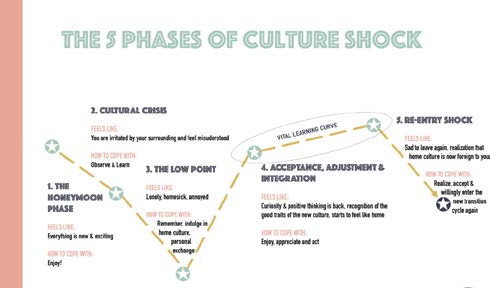
The Fate Coaching Model
The Fate model will help expat partners to find their unique way through the jungle of expatriation and figuring out their new life. The model is based on the empowering effect of getting clarity and direction. Many expat partners see the forced change of lifestyle and the connected loss of identity as triggered externally. The word FATE reflects on that symbolizing that the client is not feeling as the one making the decisions but act on them. I am aiming to twist this around and use the process of awareness techniques to reach empowerment.
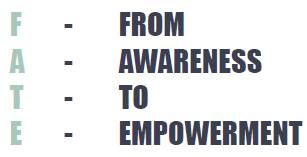
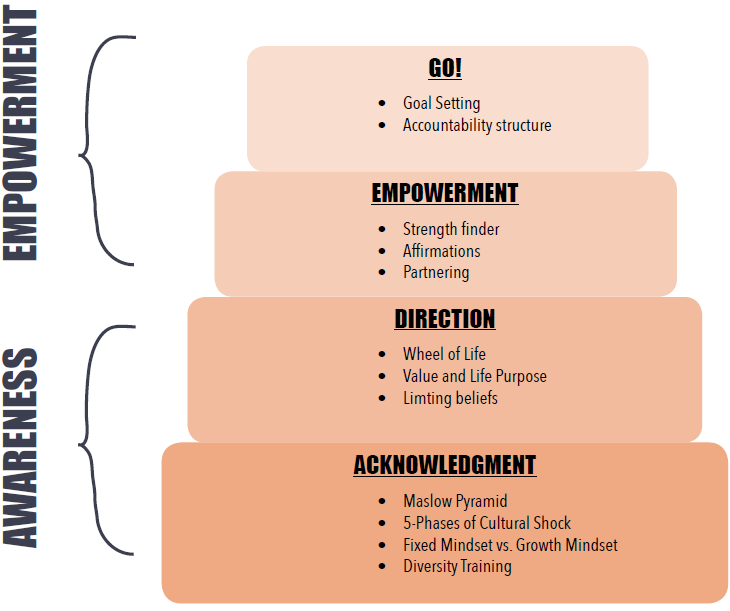

The theoretical frameworks shed light on the journey of moving abroad and reflect on how many dimensions are affected. They give orientation and proof that although it is an individual journey, the struggles are very common. This step awakes the question of how to gain a growth mindset to tackle the steps ahead and define the personal areas to work on.

Expatriation allows us to stop for a second and reflect on our life goals. Are our goals and actions still aligned with our life purpose? Has moving abroad created a shift? Based on this one can make sure to head in the right direction and reflecting on one‘s set goals.

Often expatriation takes a big hit on the confidence of expat partners. An unfamiliar environment combined with big questions of how to spend your time is not exactly helping the spirit. Coaching in combination with exercises such as the strength finder create the space for acknowledgment and empowerment.

I was a coach act as an accountability partner making sure the goals set are aligned with the values of the client. I am her sparring partner in checking in with her about her progress and helping her in case adjustment is needed.